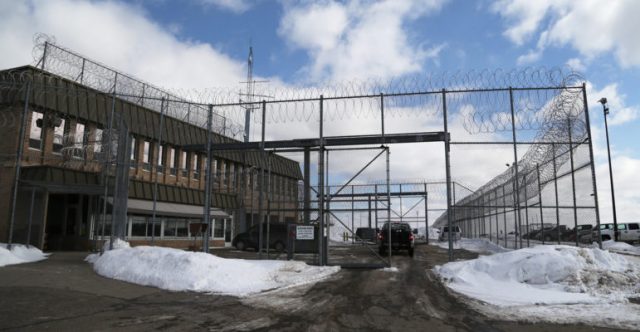
One of the state’s foremost experts on juvenile justice thinks it’s time to move away from large institutions like Lincoln Hills to house juvenile offenders.
Madison365 reported yesterday that State Representative Evan Goyke plans to introduce legislation to do just that.
Jim Moeser, who served for 16 years as Dane County’s head of Juvenile Court, was Deputy Director of Wisconsin Council on Children and Families, and was the Chairman of the Governor’s Juvenile Justice Committee, says that large warehouses like Lincoln Hills are no longer the model Wisconsin should use for youthful offenders.

Over the past few months, allegations of abuse and reports of chaotic events at Lincoln Hills have thrust the facility into the spotlight. Assaults on staff that resulted in them being hospitalized, a report that staff conducted a “practice run” of using anti-riot methods on child inmates, and federal investigation of events there, has not cast the best light on juvenile corrections in Wisconsin.
But, for Moeser, the issues are much further reaching and longer standing than the current events emanating from the rural facility.
“The larger correctional model is not working,” Moeser tells Madison365. “Thinking you could put 500 kids or so in one place? It’s a challenge to say that’s what you want to look to do. You want to have smaller places closer to these kids’ homes with a more treatment-based approach rather than an institutional approach.”
Moeser says that using smaller facilities focused on treatment, having kids stay connected to their communities and using reintegration programs is the right model for juvenile corrections. He believes Wisconsin needs to invest more heavily into individualized treatment programs designed specifically to help each kid become successful. It’s not possible to do that in large, institution-type places because the focus at those places is mostly about punishment.
Most of the kids in the juvenile justice system, according to Moeser, are troubled youth but would be able to turn things around with the right structure. Lincoln Hills calls itself a school but is surrounded by prison fencing, an ominous sight for kids trying to turn their lives around.
Furthermore, not every kid has the same confinement needs.
“For some small number of kids there needs to be some secure place where they can’t get out,” Moeser says. “Lincoln Hills uses the term ‘campus’ because it’s really a series of smaller buildings and the fencing is there to keep kids in. There are some kids who need that, but it’s a small number of kids who need that level of confinement. And how can any institution designed like that create the level of change in how they think about themselves or how they see themselves? So the goal is that most places need to be smaller and program based. How can we structure this in a way to get the best outcomes for kids reintegrating in the community? We need a variety of things that decrease their level of institutionalization.”
Moeser wants to see kids be kept close to their home communities in small, halfway-house type places that have trained staff and work on the individual problems of each child.
Which brings him to his next topic: what is a child? Currently, Wisconsin waves 17-year-olds into adult court. Kids as young as 16 have been housed in maximum security adult facilities like Green Bay Correctional Institution.
While some of the crimes committed by those youth offenders warrant long sentences and punishment, Moeser says that’s the minority and that he recommended that Governor Walker move to change the age of delinquency so that 17-year-olds are not housed with adult offenders and can work to change their lives.
“Our sense was that if we could get into the budget the age of delinquency, Governor Walker would be for changing it. That goes back to his time in Milwaukee where he knew that there were many 17-year-olds that didn’t need to be in the system. We haven’t been successful on getting key leadership to put this on their to-do list. We’re pushing more and more kids into the adult system. We aren’t doing much to change that trend.”
For Moeser, changing the age of delinquency would stem the tide of kids who go into the adult system at 17. 17 year olds who are able to stay in the juvenile system, get treatment and stay connected to their communities had a much slower rate of recidivism than kids the same age who were sent to an adult institution.
Juvenile court Judges have been recognizing this trend, Moeser says. Now the goal is for prosecutors and other state government officials to work to buck the trend as well and create a new system of alternatives.
Moeser says that new system may not include the existence of Lincoln Hills.
“Judges are pulling back from sending kids to Lincoln Hills because of what’s going on there and are looking for alternatives. I think it raises concerns for judges who are saying ‘am I doing more harm than good’ by sending kids to Lincoln Hills. I think there’s some discussion of smaller regional facilities is the way to go. It’s not likely to be cheaper but the outcomes are likely to be better. So if we can get the right kid in the right program and confine them for as little time as needed and get them back into the community with a lot of support, it’s a good investment in the long term.”



























